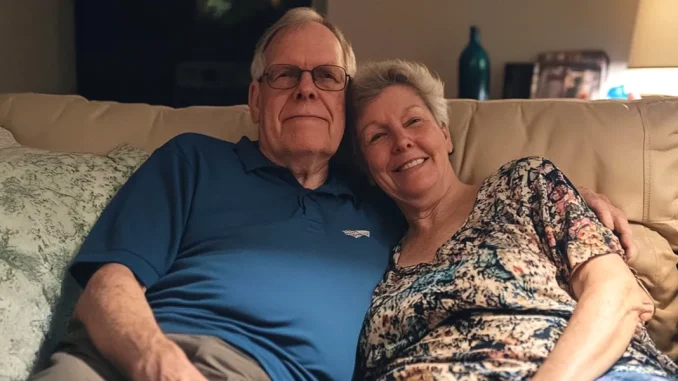
Rachel thought she was helping her ailing parents survive. For seven months, she sent the bulk of her income to support what she believed were urgent medical needs. But a spontaneous trip home uncovered a hidden truth: a secret sibling, a painful deception, and a betrayal cloaked in guilt. In the aftermath, Rachel had to decide whether to hold on to the family that broke her—or walk away for good.
The first time Rachel’s mom asked for money, she was crying.
It was a Wednesday. Rachel remembers clearly because her pasta boiled over as the call came in. Her mother’s voice trembled as she explained that Rachel’s dad had been diagnosed with a serious heart condition. Insurance wasn’t covering everything—medications, tests, appointments. They were struggling.
“We’re drowning, Rachel,” her mom had whispered. “Just a little help, sweetie. We’d be forever grateful.”
Rachel didn’t hesitate. Her parents had always given her love, even when money was tight. Her dad juggled jobs. Her mom turned scraps into meals. They’d celebrated every milestone in Rachel’s life like it was a miracle.
Helping them felt natural—like breathing.
So she sent them nearly all of her salary, keeping just enough to survive. Every payment felt like a lifeline—medicine bought, bills eased, a little less worry in their home. They repeatedly asked her not to visit. “Dad’s too tired. The house is too messy. Life’s chaotic,” they’d say. But Rachel never questioned it. She trusted them. Loved them. Missed them deeply.
They kept their video calls short and vague—half her mom’s face on screen, Dad’s voice in the background. Rachel didn’t pry. She just pictured them as they described: weary but grateful, surviving because of her support.
Then one weekend, driving home from a dull work conference, fate rerouted her past her parents’ neighborhood. On a whim, she stopped for pastries and coffee, planning a surprise visit.
But it wasn’t the joyful reunion she imagined.
When she walked through the front door, a stranger sat on her parents’ couch—legs tucked under her, designer sneakers on the coffee table, sipping from a mug Rachel didn’t recognize. She looked up and smirked.
“You must be the replacement,” the woman said.
Rachel froze. Confused. Hurt.
Then her father appeared, shock written across his face. “Rachel… you weren’t supposed to be here,” he murmured.
That woman was Melissa—Rachel’s older sister. A daughter her parents had given up for adoption as teenagers and never spoke of again. Melissa had reappeared last year and manipulated her way into their lives with promises of reconnection. But what she really wanted was revenge—for being given up, for the life she didn’t get.
She demanded what Rachel had: love, support, money. And when her parents couldn’t give it to her, she pointed to Rachel.
“She’s the one with the job. She owes you. Start collecting,” Melissa had said.
And they did.
Rachel’s parents fabricated her father’s illness to funnel Rachel’s money to Melissa. For clothes. For comfort. For approval.
All the while, they told Rachel they loved her, needed her, and thanked her for keeping them afloat.
The betrayal left Rachel hollow. She left that day without another word—dropping the pastries, ignoring their calls, sobbing on the side of a highway. Weeks passed. She couldn’t understand how the people she trusted most could deceive her so easily.
And yet… she missed them.
Then, one day, they appeared on her doorstep, looking older, broken.
“Melissa never wanted us,” her mother whispered. “She told us to our faces. Said we were just tools to get what she wanted.”
Her father added, “We thought we could make up for the past. We were so consumed by guilt. But all we did was break the daughter who never asked for anything.”
Rachel stood guarded, her love now lined with scars. But in their raw regret, she saw not monsters—just Gloria and Glen, the flawed parents she once adored.
“You should’ve told me,” she said, voice tight with pain. “I could’ve handled the truth.”
They nodded. Apologized. Admitted everything.
Melissa left a few weeks later, returning to her adoptive family and calling her biological parents “not worth the effort.”
But for Rachel, they were worth everything. Even now.
She’s rebuilding her bond with them—not through blind generosity, but through truth. Painful, messy, honest truth. Sometimes she sends money. Not because they ask, but because she still loves them.
Melissa might return someday.
But if she does, she won’t find the same Rachel. She’ll meet a woman who knows her worth, who sees betrayal for what it is, and who carries her scars like armor.
Because some walls need to fall.
And some daughters never stop loving—but they do learn how to protect themselves.
Leave a Reply